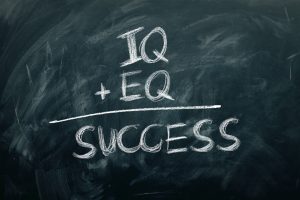
Fuel for Success and Growth
Gratitude, it’s a simple word, yet it holds a profound impact on our journey towards personal and professional growth. When we truly embrace gratitude, we unlock a mindset that goes beyond appreciation; we also invite a perspective shift that nurtures resilience, fosters connections, and propels us toward success.
Why Does Gratitude Matter in Personal Development?
Gratitude is a transformative tool. At its core, gratitude allows us to focus on what we have rather than what we lack. This shift in focus helps us to stay positive, even in challenging times, and cultivates a growth-oriented mindset. When we acknowledge the small wins and the support from those around us, we build a strong foundation of motivation and self-confidence, essential pillars for development.
How Does Gratitude Fuel Success?
- Builds Resilience
Grateful people are more resilient because they can see the silver linings even in tough situations. When we’re grateful, setbacks become opportunities for growth rather than roadblocks. This resilience empowers us to bounce back faster and stronger, helping us navigate the challenges that come with pursuing success. - Strengthens Relationships
Expressing gratitude strengthens our connections with others, creating a network of supportive and positive relationships. A genuine “thank you” or an acknowledgment can transform professional relationships into collaborative partnerships. Success often depends on teamwork and support, gratitude fosters an environment where people are more willing to go the extra mile for each other. - Enhances Focus and Clarity
Practicing gratitude redirects our focus away from the distractions of what we don’t have and helps us gain clarity on what truly matters. This clarity enables us to set and achieve meaningful goals, making every step intentional and aligned with our core values. - Encourages Continuous Growth
Grateful individuals naturally seek to improve themselves, not because they’re unhappy with where they are, but because they recognize and cherish their potential. This mindset of gratitude and growth is contagious, inspiring others to strive for their best and creating a culture of development and improvement.
The Role of Gratitude in Leadership
Gratitude plays a powerful role in effective leadership. Leaders who practice gratitude create a positive, inclusive environment where team members feel valued and motivated. Recognizing and appreciating team efforts, big or small, not only builds trust but also encourages a culture of collaboration and support. Gratitude allows leaders to view challenges as shared experiences rather than burdens, fostering resilience within their teams. When leaders model gratitude, they set the tone for a workplace that thrives on mutual respect, which is essential for long-term success and loyalty.
Incorporating Gratitude Into Daily Life
It doesn’t take much to make gratitude a regular part of life. Start with small actions, like keeping a gratitude section in your journal, acknowledging a colleague’s contribution, or simply reflecting on one positive moment each day. Over time, these habits build a framework of appreciation that fuels a sense of fulfillment and joy in everything we do.
As we strive for bigger and better, gratitude reminds us to pause, acknowledge where we are, and appreciate the journey. Embrace gratitude, and watch it become the spark that lights your path to success and fulfillment.


 Fear can come in many forms. It could be the fear of public speaking, the hesitation to stand up and present to a crowd, the unease of taking the lead on a challenging project, or even something as instinctual as a fear of insects, dogs, or snakes.
Fear can come in many forms. It could be the fear of public speaking, the hesitation to stand up and present to a crowd, the unease of taking the lead on a challenging project, or even something as instinctual as a fear of insects, dogs, or snakes.
 Have you ever felt a tight knot in your stomach just thinking about going to work? The emotional toll, the constant stress, and that lingering feeling that something is not quite right, this may be the result of a toxic workplace. Toxic environments can develop in any organization, regardless of size or industry, and they have a devastating impact on morale, productivity, and even personal well-being. But how do we cure it?
Have you ever felt a tight knot in your stomach just thinking about going to work? The emotional toll, the constant stress, and that lingering feeling that something is not quite right, this may be the result of a toxic workplace. Toxic environments can develop in any organization, regardless of size or industry, and they have a devastating impact on morale, productivity, and even personal well-being. But how do we cure it? When hiring, recruiters often focus on what they perceive are the big-ticket items: technical expertise, leadership qualities, and industry experience. But amidst this pursuit of qualifications, there is one critical skill that consistently flies under the radar, emotional intelligence (EI). Despite its profound impact on teamwork, leadership, and overall workplace harmony, emotional intelligence remains a glaring blind spot in today’s job market.
When hiring, recruiters often focus on what they perceive are the big-ticket items: technical expertise, leadership qualities, and industry experience. But amidst this pursuit of qualifications, there is one critical skill that consistently flies under the radar, emotional intelligence (EI). Despite its profound impact on teamwork, leadership, and overall workplace harmony, emotional intelligence remains a glaring blind spot in today’s job market. In 2014, I had the privilege of working alongside Dr. Greg Skulmoski at Cleveland Clinic Abu Dhabi (CCAD). From the outset, Greg’s deep expertise in Project Management and his practical approach to handling complex projects stood out. His ability to combine technical knowledge with effective leadership left a lasting impression during our time working together.
In 2014, I had the privilege of working alongside Dr. Greg Skulmoski at Cleveland Clinic Abu Dhabi (CCAD). From the outset, Greg’s deep expertise in Project Management and his practical approach to handling complex projects stood out. His ability to combine technical knowledge with effective leadership left a lasting impression during our time working together.
 Stakeholder management has experienced a significant transformation. Gone are the days when quarterly meetings and monthly email updates sufficed. Today, Project Management Offices (PMOs) must navigate the complexities of real-time communication, engage stakeholders across various digital platforms, and foster relationships in a world where information flows constantly.
Stakeholder management has experienced a significant transformation. Gone are the days when quarterly meetings and monthly email updates sufficed. Today, Project Management Offices (PMOs) must navigate the complexities of real-time communication, engage stakeholders across various digital platforms, and foster relationships in a world where information flows constantly.